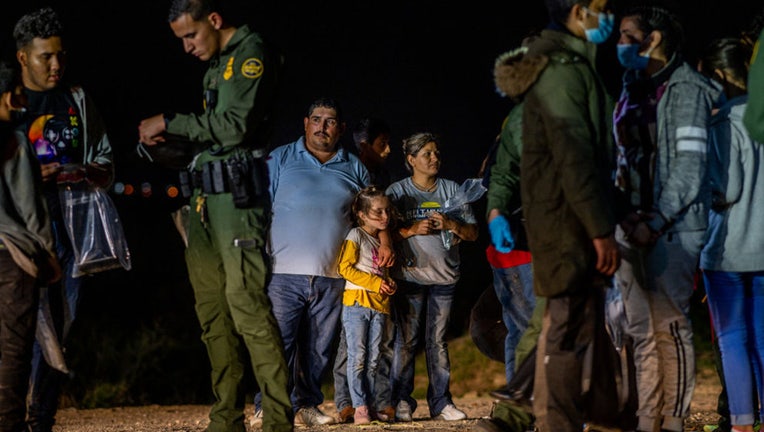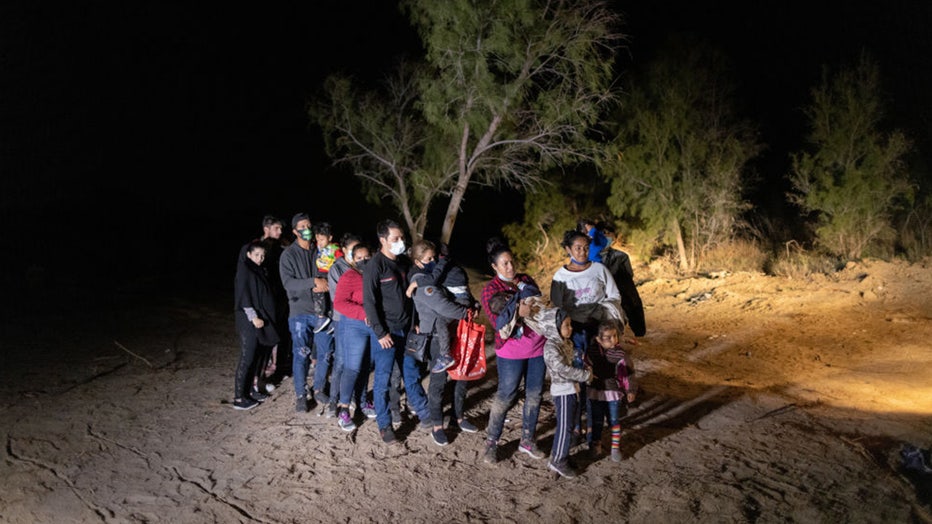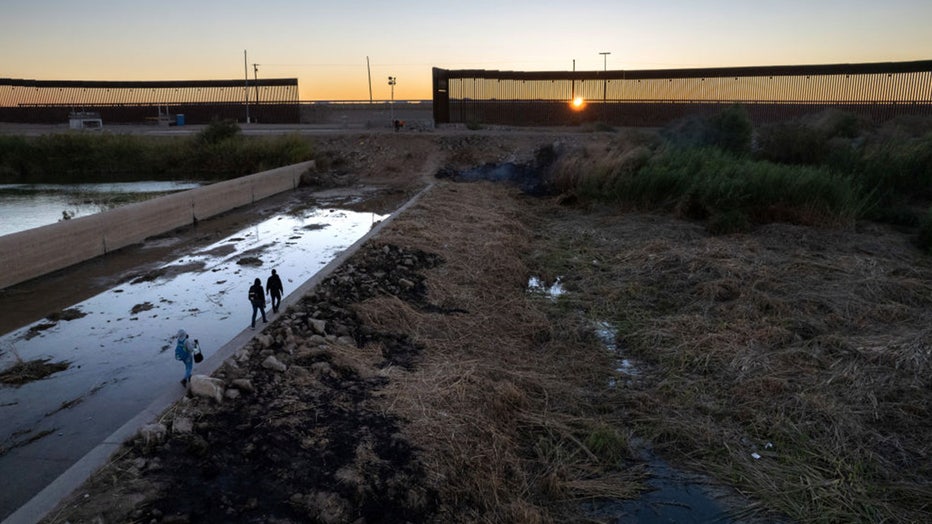Federal judge poised to bar separating migrant families at US border for 8 years

FILE - A migrant family stands waiting to be processed on May 05, 2022 in Roma, Texas. (Brandon Bell/Getty Images)
SAN DIEGO - A federal judge was poised Friday to prohibit separation of families at the border for purposes of deterring immigration for eight years, preemptively blocking resumption of a lightning-rod, Trump-era policy that the former president hasn't ruled out if voters return him to the White House next year.
U.S. District Judge Dana Sabraw tentatively approved a court settlement in October between the Justice Department and families represented by the American Civil Liberties Union. The ACLU says no one formally objected, clearing the way to end the case nearly seven years after it was filed.
Sabraw, who was appointed by President George W. Bush, ordered an end to separations in June 2018, six days after then-President Donald Trump halted them on his own amid intense international backlash. The judge also ordered that the government reunite children with their parents within 30 days, setting off a mad scramble because government databases weren't linked. Children had been dispersed to shelters across the country that didn't know who their parents were or how to find them.

FILE- Immigrant families wait to be processed by Border Patrol agents after they crossed the Rio Grande into south Texas on April 29, 2021 in Roma, Texas. (John Moore/Getty Images)
Under the proposed settlement, the type of "zero-tolerance" policy under which the Trump administration separated more than 5,000 children from parents who were arrested for illegally entering the country would be prohibited until December 2031.
Children may still be separated but under limited circumstances, as has been the case for years. They include if the child is believed to be abused, if the parent is convicted of serious crimes or if there are doubts that the adult is the parent.

FILE - In an aerial view, a immigrant family from Haiti walks towards a gap in the U.S. border wall from Mexico on Dec. 11, 2021 in Yuma, Arizona. ( John Moore/Getty Images)
Families that were separated may be eligible for other benefits — legal status for up to three years on humanitarian parole; reunification in the United States at government expense; one year of housing; three years of counseling; legal aid in immigration court. But the settlement doesn't pay families any money. In 2021, the Biden administration considered compensating parents and children hundreds of thousands of dollars each, but talks stalled.
As he seeks to return to the White House in next year's elections, Trump has been noncommittal whether he would try to resume family separations. He defended the results in an interview with Univision last month, claiming without evidence that it "stopped people from coming by the hundreds of thousands."
"When you hear that you’re going to be separated from your family, you don’t come. When you think you’re going to come into the United States with your family, you come," Trump said.

